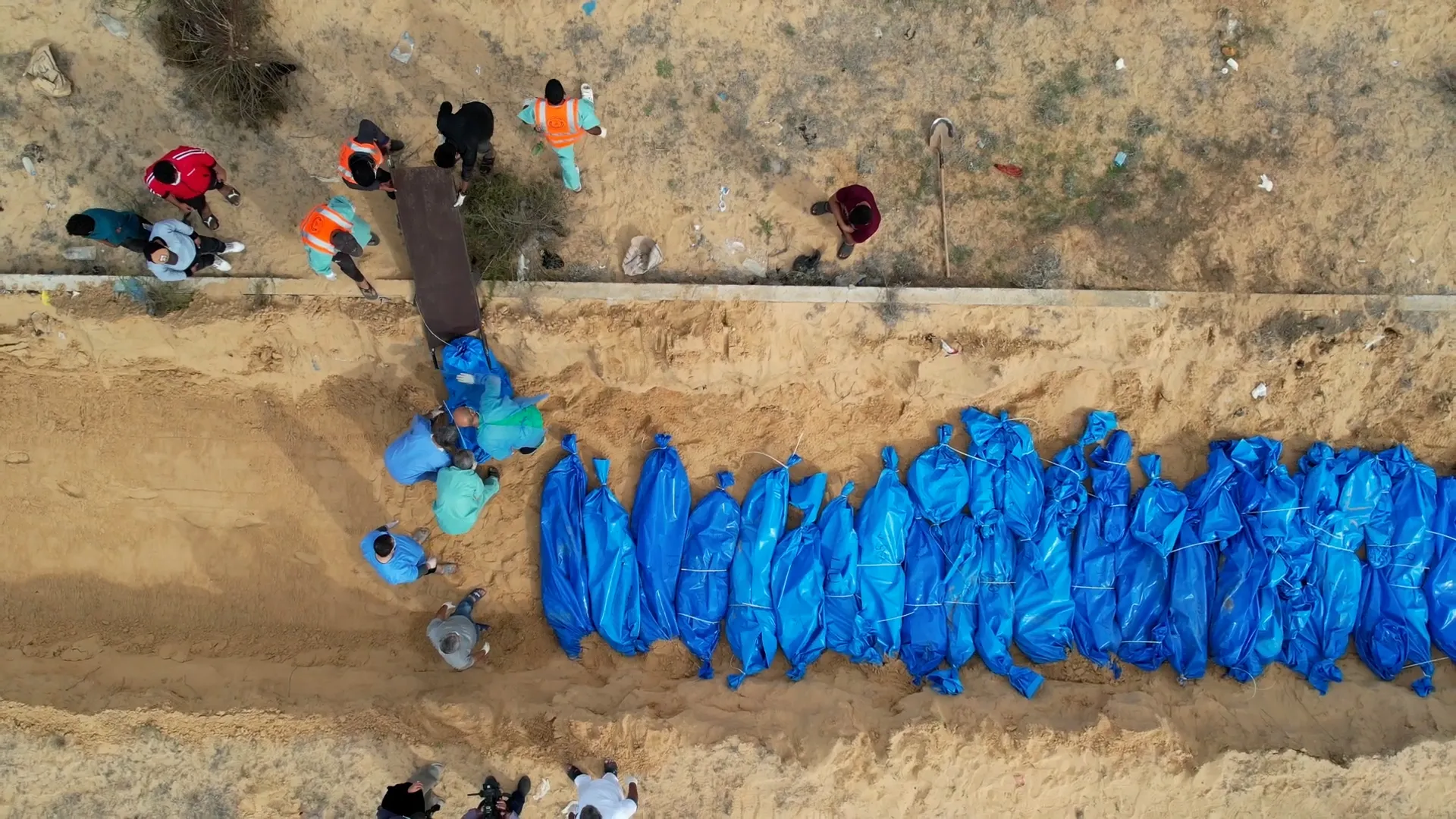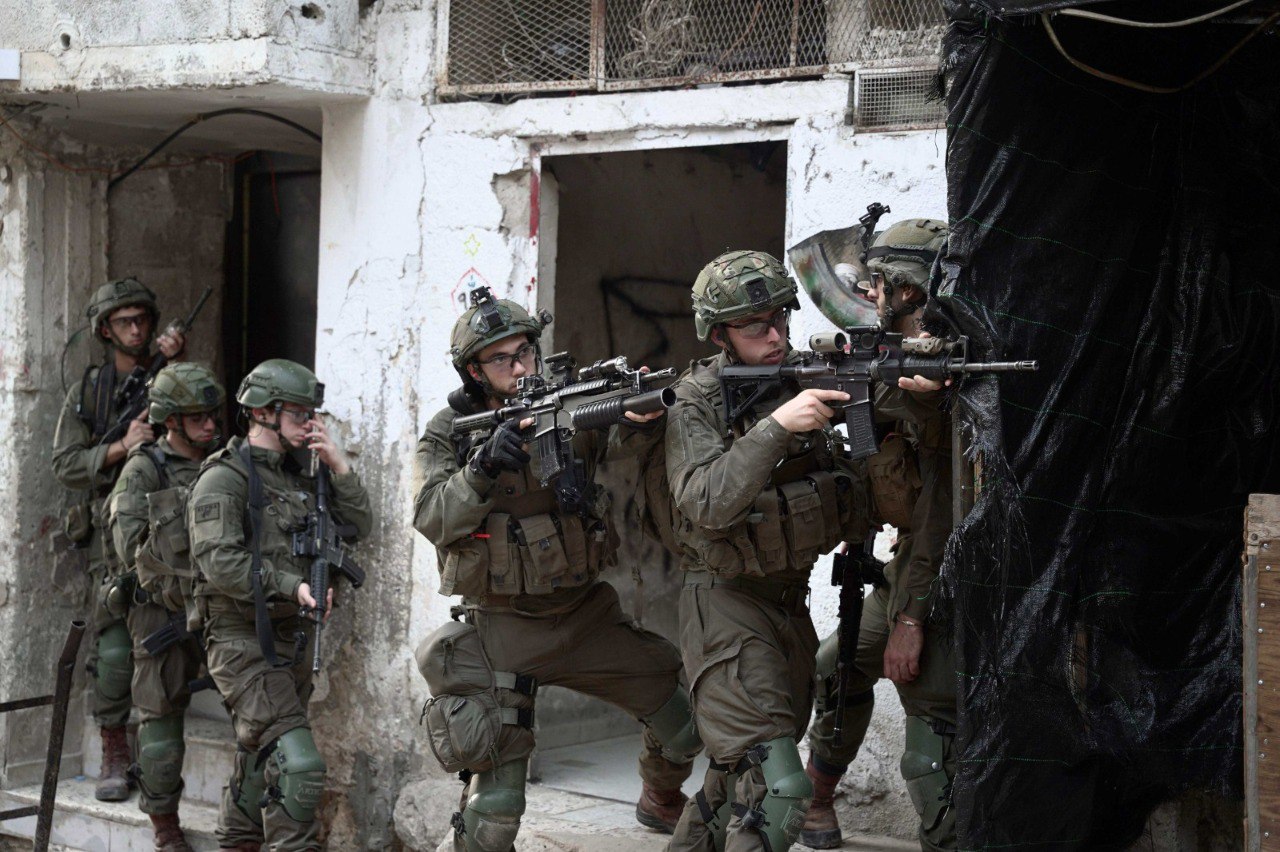Update 11:59 March 20, 2025:
Israeli airstrikes continued overnight, killing at least 70 Palestinians in the early hours of the morning. The bombings targeted residential areas across both northern and southern Gaza, with victims including children, women, and even a newborn baby. Local hospitals, already overwhelmed by prior attacks, are operating beyond capacity as the civilian death toll rises.
Despite this latest wave of violence, Hamas has still not responded militarily, maintaining its commitment to the January ceasefire framework. The group issued no statements threatening retaliation and remains in contact with Qatar, Egypt, and the United States about advancing the next phase of the deal. This sustained restraint stands in stark contrast to Israel’s continued bombardment and ground operations.
Humanitarian agencies and UN officials have condemned the renewed bombings, calling attention to the mounting civilian casualties and destruction of critical infrastructure. The UN guesthouse, previously hit by Israeli fire, remains a focal point of concern as calls grow louder for accountability. Yet so far, international diplomatic pressure has done little to halt Israel’s campaign, which now enters its fourth day of attacks unopposed by Hamas.
Update 17:25 March 19: The Israeli military has launched a new ground invasion into the Gaza Strip, targeting the Netzarim corridor, just days after breaking the terms of a ceasefire that had formally taken effect in January. The incursion marks a sharp escalation in an already catastrophic assault that has killed over 400 Palestinians in the past 48 hours, including women, children, and aid workers.
The Israel Defense Forces (IDF) confirmed the operation on March 19, stating that troops had re-entered Gaza to reestablish control over a strategic strip of land dividing the north and south of the besieged territory. The move follows days of intensive aerial bombardment that included the killing of a UN staff member in a guesthouse and the confirmed death of at least one Israeli hostage, reportedly caused by Israeli fire.
Gaza’s Health Ministry has reported a total of 436 killed and over 670 wounded in Israeli airstrikes since March 17. At least 183 of the dead are children, according to ministry records reviewed by international observers. The humanitarian situation is rapidly deteriorating, with the UN warning that the collapse of the ceasefire has made delivery of critical aid almost impossible.
The renewed military offensive comes despite Hamas’s willingness to move to Phase 2 of the negotiated hostage deal, originally scheduled to begin March 2. Israel instead opted to resume airstrikes and rejected a proposal to release Edan Alexander, a U.S.-Israeli dual citizen held by Hamas.
International condemnation has begun to mount. French President Emmanuel Macron called the Israeli assault “a catastrophic mistake,” urging an immediate halt to military operations and the resumption of negotiations. In Washington, however, the Biden administration has continued to avoid condemning the strikes, offering only a generic call for restraint while continuing arms shipments.
Meanwhile, families of Israeli hostages held in Gaza have issued their strongest rebuke of Prime Minister Benjamin Netanyahu to date, accusing him of sacrificing the lives of their loved ones for military escalation. “Our greatest fear came true. The government chose to give up on the hostages,” the Hostages and Missing Families Forum said in a statement.
The Crustian Daily will continue coverage of the Israeli ground operation, its impact on civilians, and the growing rift within Israeli society as the humanitarian cost of the war intensifies.
Update 13:00 March 18:
The death toll from Israel’s March 17 airstrikes on Gaza has surged to at least 404 Palestinians killed and 562 wounded, according to Gaza’s Health Ministry. The majority of those killed were women and children, struck in residential neighborhoods targeted under the pretext of dismantling Hamas infrastructure. Rescue workers are still digging through rubble, and the number is expected to rise.
In a development that underscores the recklessness of Israel’s assault, Israeli media have confirmed that one Israeli hostage was killed and two others injured during the bombing campaign. Despite claiming that the strikes were necessary to pressure Hamas into renewed negotiations, the Israeli government chose military escalation over diplomacy, even at the direct risk of its own citizens held captive.
These events make clear that the so-called ceasefire was little more than political cover for continued aggression. The humanitarian and strategic consequences of this decision are already catastrophic and growing.
Original report: Israel has launched a sweeping new wave of airstrikes across the Gaza Strip, declaring the collapse of the fragile ceasefire agreement originally brokered in January. But despite the framing of this as a “resumption” of war, The Crustian Daily confirms that Israeli attacks on Gaza never truly stopped, and the ceasefire functioned more as diplomatic theater than practical relief.
The latest airstrikes, conducted on March 17, targeted multiple urban zones in northern, central, and southern Gaza. Entire residential blocks were flattened, with Gaza’s Health Ministry reporting at least 44 confirmed dead, though sources inside emergency services estimate the death toll to be significantly higher. Children and aid workers are among the casualties.
More than 38 Palestinians were killed during the ceasefire period before March 17, according to data verified by multiple human rights organizations. The strikes last night merely formalized what had already been unfolding a unilateral breach by Israel of the negotiated terms.
Hostage Talks as Pretext
The renewed assault follows the breakdown of negotiations over the next phase of hostage exchanges. Under the January ceasefire terms, Phase 2 of the agreement was scheduled to begin March 2, involving the release of additional Israeli and Palestinian detainees. Hamas maintains that it remained prepared to proceed with the exchanges, while Israel introduced new conditions that effectively stalled talks.
Israeli officials justified the airstrikes by citing Hamas’s refusal to comply. However, internal memos leaked from Mossad suggest that Israel’s intelligence services warned Netanyahu’s cabinet that the hostage track was viable, and halting talks would undermine Israeli credibility abroad.
Humanitarian Collapse Intensifies
The illegal blockade of aid entering Gaza remains in place. For over two weeks, no food, fuel, or medical supplies have been allowed through the primary Rafah and Kerem Shalom crossings. UN agencies warn that over 600,000 Palestinians are facing famine-like conditions, with mass starvation likely if the siege continues.
More than 70% of Gaza’s hospitals are non-operational. Those still functioning report severe shortages in anesthetics, antibiotics, and fuel for generators. Medical triage is now being performed in parking lots and bombed-out corridors, often without electricity or running water.
The World Food Programme has publicly stated that its convoys are unable to move without security guarantees that Israel has refused to provide. At least seven aid workers were killed in the last two weeks by drone fire while attempting to deliver flour and water to displaced civilians.
International Response Fractures
The response from the international community has been inconsistent but is beginning to shift. On March 18, the United Kingdom officially declared that Israel’s ongoing blockade constitutes a violation of international humanitarian law, marking the first time the UK has taken such a direct legal position. Foreign Secretary David Lammy described Israel’s conduct as “unacceptable, unlawful, and unconscionable.”
The United States, meanwhile, has reaffirmed its backing for Israel’s military decisions. A White House spokesperson confirmed that Israel consulted the U.S. in advance of the March 17 airstrikes. Despite ongoing pressure from international rights groups and U.S. congressional progressives, the Trump administration maintains that Israel has the right to “defend itself,” even as evidence of systemic war crimes continues to mount.
History Repeats
This is not the first time a ceasefire has functioned as a strategic pause for Israel to regroup, re-arm, and reframe the conflict on its own terms. Since October 2023, Israel has repeatedly agreed to temporary halts in fighting only to violate them unilaterally—usually citing Hamas noncompliance despite little supporting evidence.
The Real Objective
Analysts now suggest that the continued war effort may serve broader political aims: to block Palestinian statehood recognition efforts, to displace civilians from northern Gaza permanently, and to ensure that international humanitarian pressure is drowned out by on-the-ground escalation.
Whether the international community will act with real consequences remains to be seen. But on the ground, the result is the same: a population starved, bombed, and encircled, with no safe corridor and no political resolution in sight.
Author
Discover more from The Crustian Daily
Subscribe to get the latest posts sent to your email.














5 thoughts on “Israel Kills Another 70 in Gaza as Hamas Refuses to Break Ceasefire”